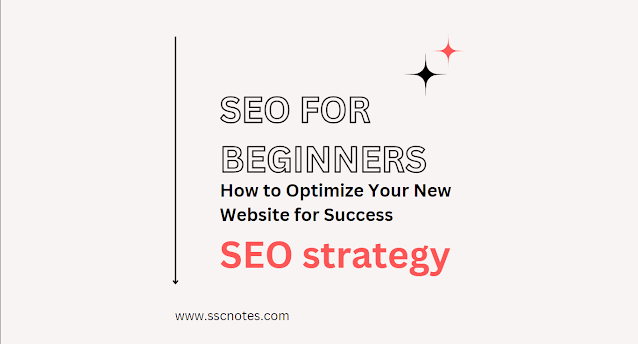SEO for Beginners: How to Optimize Your New Website for Success
SEO for Beginners: How to Optimize Your New Website for Success
Launching a new website is an exciting endeavor, but without proper search engine optimization (SEO), your website might struggle to gain visibility in search engine results. SEO is the key to driving organic traffic and attracting relevant audiences to your website. In this guide, we'll walk you through the essential steps to effectively optimize your new website for search engines.
1. Keyword Research and Analysis
Start by conducting thorough keyword research to identify the terms and phrases your target audience is using to search for content related to your website. Utilize keyword research tools to find relevant keywords with a balance between search volume and competition.
2. On-Page SEO
Optimize each page of your website for search engines and users:
- Title Tags: Craft unique and descriptive title tags for each page, incorporating relevant keywords.
- Meta Descriptions: Write compelling meta descriptions that accurately represent your content and encourage click-throughs.
- Header Tags: Use header tags (H1, H2, H3, etc.) to structure your content and make it easier for search engines to understand.
- Content Optimization: Create high-quality, informative content that naturally incorporates your chosen keywords.
3. Technical SEO
Ensure your website's technical aspects are in good shape:
- Site Structure: Organize your website's content logically with a clear navigation structure.
- Mobile-Friendliness: Make sure your website is responsive and provides a seamless experience on mobile devices.
- Page Speed: Optimize your website's loading speed to provide a better user experience and improve SEO rankings.
4. Optimize Images and Multimedia
Optimize images by reducing file sizes without compromising quality. Use descriptive file names and alt text to help search engines understand the content of your visuals.
5. Create High-Quality Backlinks
Build a strong backlink profile by acquiring links from reputable websites in your niche. Guest posting, influencer outreach, and creating valuable content can help you earn quality backlinks.
6. Local SEO
If your website has a physical presence, optimize for local searches by creating a Google My Business listing and ensuring your contact information is consistent across all platforms.
7. User Experience (UX) Matters
A good user experience is critical for both users and search engines. Ensure easy navigation, clear calls to action, and a visually appealing design to keep visitors engaged.
8. Regularly Update and Create Content
Fresh and relevant content keeps both users and search engines engaged. Regularly publish blog posts, articles, or other valuable content related to your niche.
9. Monitor and Analyze
Use tools like Google Analytics and Google Search Console to monitor your website's performance. Analyze metrics such as traffic, bounce rate, and keyword rankings to identify areas for improvement.
10. Be Patient
SEO is a long-term strategy. It takes time for search engines to crawl and index your website. Be patient and consistent in your efforts.
Final Thoughts
Effective SEO for a new website involves a combination of strategic planning, technical optimization, and continuous improvement. By following these fundamental steps and staying up-to-date with SEO best practices, you'll increase your website's visibility, attract organic traffic, and establish a solid online presence. Remember that SEO is an ongoing process, and staying committed to optimizing your website will yield positive results over time.
Blogging:
 Reviewed by SSC NOTES
on
August 21, 2023
Rating:
Reviewed by SSC NOTES
on
August 21, 2023
Rating:
